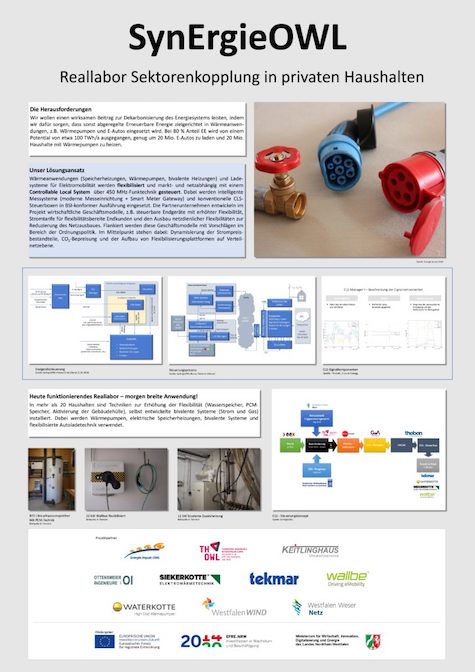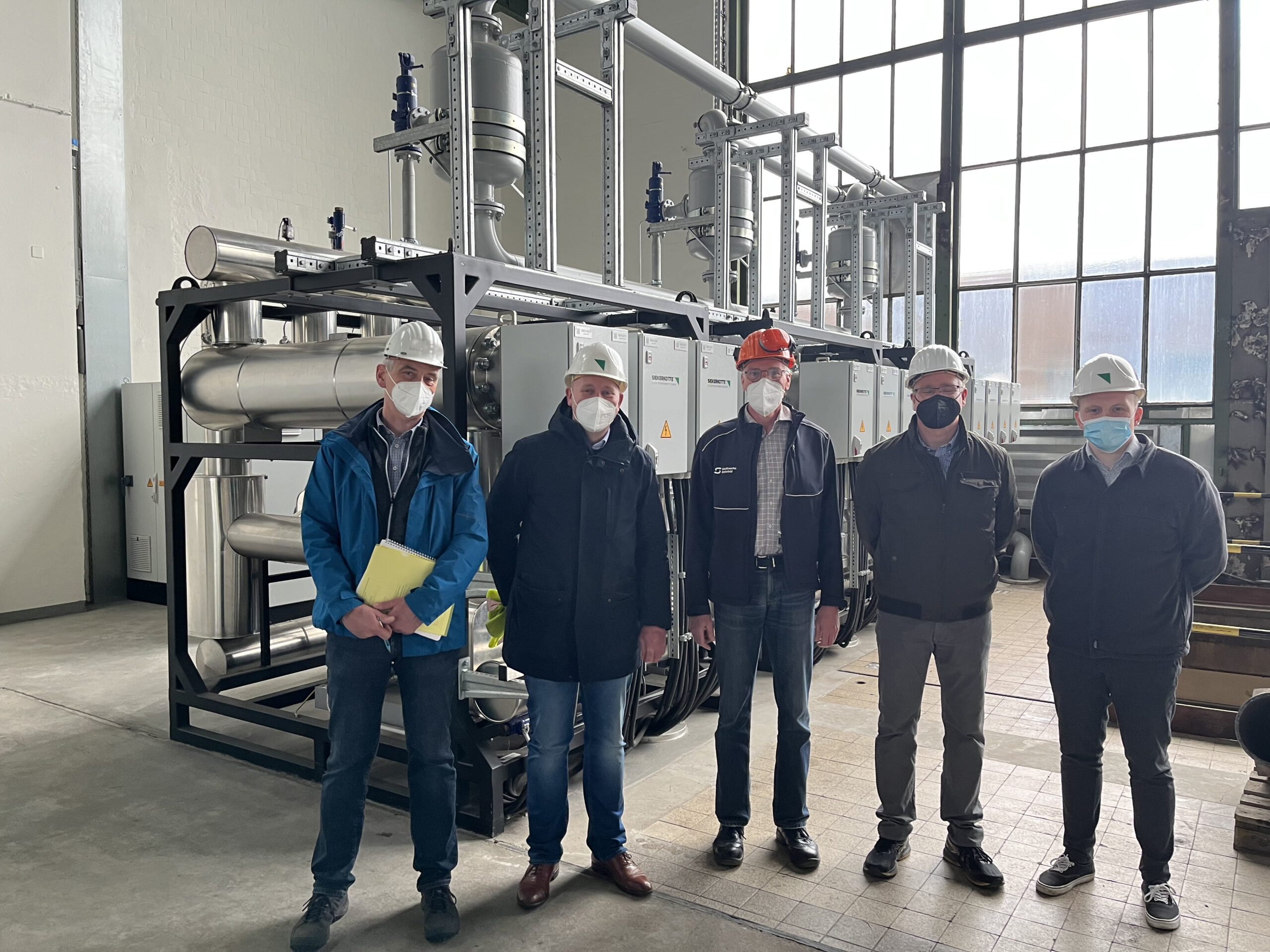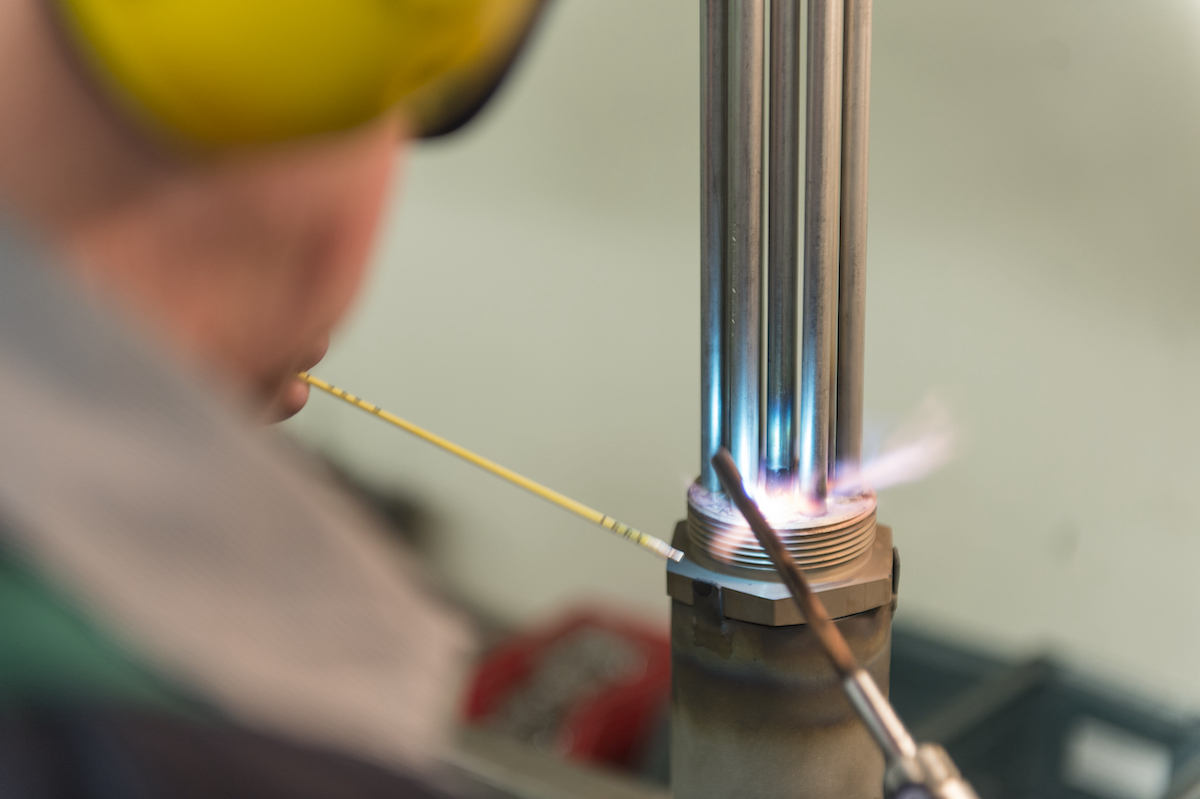
SynErgieOWL – Siekerkotte’s research partner for energy transition
Siekerkotte became integral consortium partner of a research group in mid-2018, that is financially supported by the European Regional Development Fund (ERDF) and works on concrete solutions for the energy transition.
In this context, the companies that are part of the SynErgieOWL project are looking into the question of how renewable energy can be used by making heat loads more flexible (power-to-heat applications) and enabling flexible charging of electric cars (power-to-mobility applications) in private households instead of shutting them down due to power grid overloads. The basis for this project is a stock market price-optimized, cost-effective control process.
Siekerkotte is in charge of the topic of bivalent heating systems (power-to-heat) and expects that the results of the project will make new developments available for tackling the heat turnaround. Completion for the project is planned for 2020. Other research partners include companies such as Westfalen Weser Netz, Westfalen Wind Strom, Watterkotte, Keitlinghaus Umweltservice, wallbe, Ottensmeier Ingenieure and tekmar. The project is scientifically supported by the Institute for Energy Research of the Hochschule Ostwestfalen-Lippe and coordinated by the EnergieImpulsOWL association.
Similar articles

Gas burner substitution

SynErgieOWL – Siekerkotte’s research partner for energy transition





